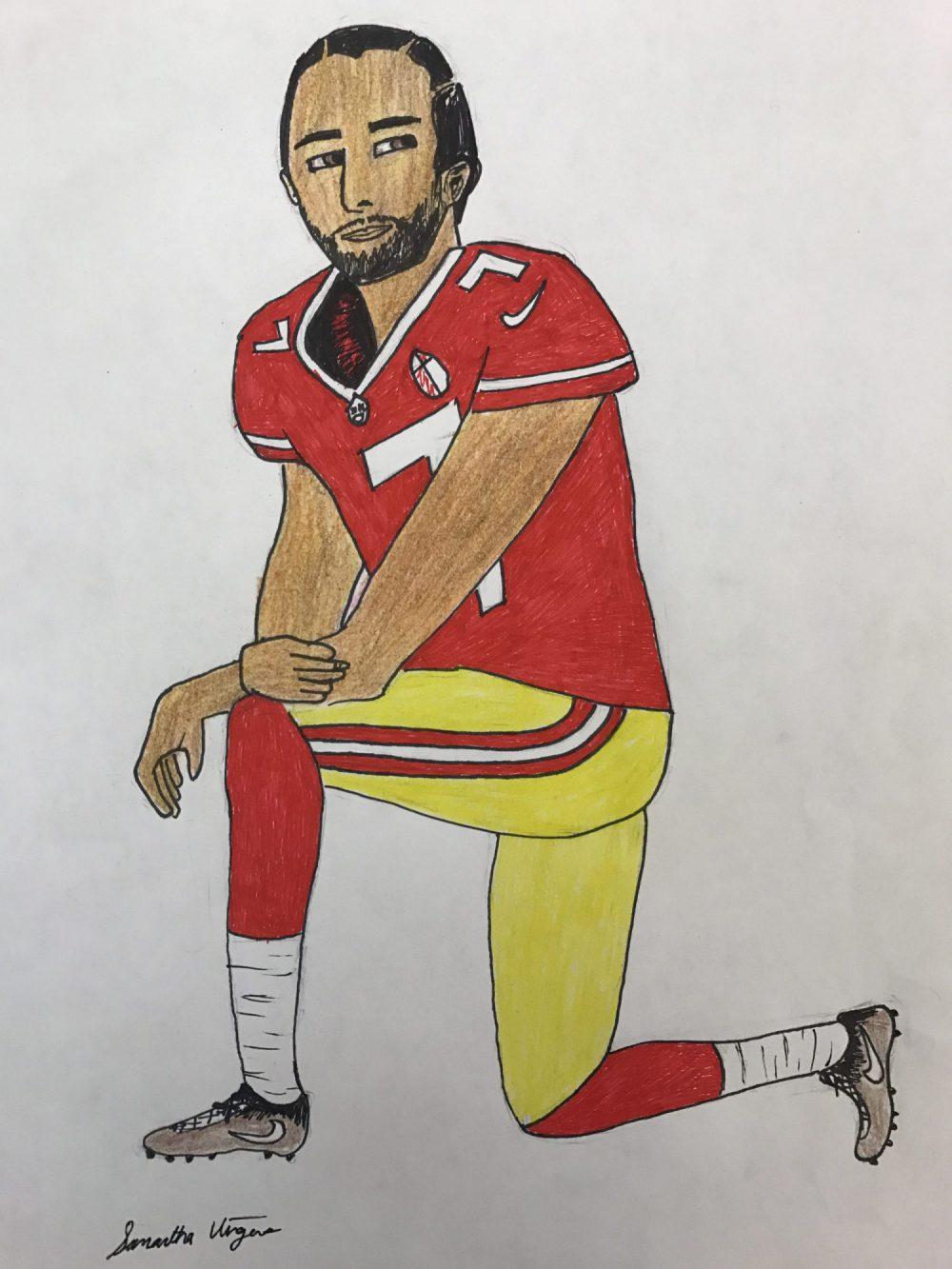
Before a preseason game on August 26, San Francisco 49ers second-string quarterback Colin Kaepernick sat for the national anthem, protesting police treatment toward African Americans.
“He can speak out about a very important issue,” Drew Brees, starting quarterback of the New Orleans Saints, told ESPN. “There’s plenty of other ways that you can do that in a peaceful manner that doesn’t involve being disrespectful to the American flag.”
Should Kaepernick be faulted for employing free speech, granted by the Bill of Rights?
At Brimmer, many students oppose Kaepernick’s protest. “It is unpatriotic for anybody to be kneeling for the national anthem,” says Jack Donnelly ’18. “Still, we are living in a day and age where equality is really hard to find.”
For his part, Steven Ramsden ’19 says, “He is kneeling for a deeper meaning than the flag. It’s supposed to represent justice and fairness but these past years, America hasn’t been that way.”
Director of Diversity, Jessica Christian agrees, “When people do something similar to what [Kaepernick] has done they see it as anti-American, but it’s extremely American to exercise one’s first amendment right, including to kneel down during the national anthem.”
“He has the constitutional right to sit or stand during the national anthem,” said Upper School Head Joshua Neudel. “He is protesting in a respectful way. He is simply taking a knee as a way to express concerns about an issue that he sees in the country.”
As far as I’m concerned, Kaepernick chose the wrong way to protest police brutality. He has every right to sit or kneel during the national anthem, but I fear he angered more people than he called to action. He might have found more success by using a different platform, other than a professional football game, to speak out against a real issue that needs addressing.
[polldaddy poll=9543189]
Illustration by Samantha Vingers ’17.























































